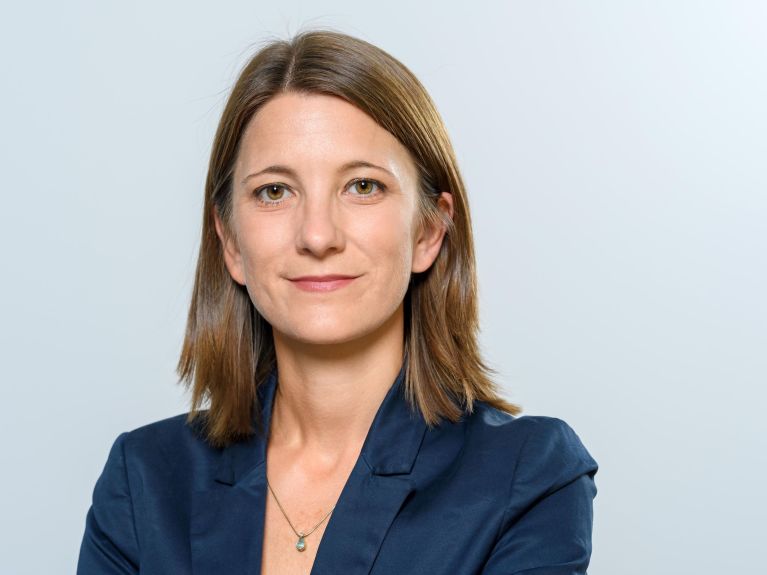“We need to engage in dialogue with Donald Trump”
The US after the election: Laura von Daniels, Head of the Americas Research Group at the German Institute for International and Security Affairs, on the transatlantic dialogue.

Dr von Daniels, it was clear even before the US presidential election on 5 November 2024 that transatlantic relations were changing. What will be particularly important after Donald Trump’s election victory?
It is in the best interests of Germany and the EU to maintain binding transatlantic relations, for example through NATO, and do everything possible to help ensure that Donald Trump does not conflate unrelated issues again. It is dangerous if Trump’s dissatisfaction with the US trade deficit leads him to reject cooperation in the area of security. We need to engage in dialogue with him about how to develop security arrangements on a joint basis. The aim must also be to stand up to Vladimir Putin and prevent him from continuing to shift borders.
It is still vital to maintain relations with the Democratic Party.
On the one hand, the new Trump administration should be approached with an open mind. It will be important to establish dialogue with key players in the areas of foreign policy, security, defence and economic policy, focusing on their interests and priorities and identifying common goals for the US and Europe. At the same time it is still vital to maintain relations with the Democratic Party and see who their key figures will be in the future.
Shortly before the election, in a joint article with your colleague Layla Schoenfeld of the German Institute for International and Security Affairs (SWP), you showed that – regardless of the outcome of the election – a new group of progressive female politicians will play a key role in shaping the future of the US and the Democratic Party. Could you explain what you mean?
The Democratic Party is facing a reorganisation in all areas of politics that will affect both the states and Congress. Gretchen Whitmer, Governor of Michigan, is a key driving force behind the renewal of the party: she also appeals to broad sections of the electorate with her progressive positions and pragmatic political style. One indication of this change in the American population is the election of Angela Alsobrooks as Senator for Maryland. At least with her and Lisa Blunt there are now two black women in the US Senate. Elissa Slotkin was elected to the Senate for Michigan – so a region that is struggling with economic and social problems has not opted to support right-wing economic populism but what we in Germany would call a social democratic approach. From a German perspective, this kind of pragmatism is much appreciated in the area of climate policy, for example.
“Even after the election, it is not in the interests of the US for Vladimir Putin’s Russia to simply carry on shifting borders.”
Donald Trump’s clear victory took a lot of people by surprise – both in the US and in Europe. Does the European perspective on America need to change fundamentally?
In Germany and Europe people failed to see the extent to which economic populism can be effective in the face of economic decline in certain regions. You could sense that this decline was going to have a negative impact on political structures. Given the free-market, capitalist character of the US, however, there was a long-standing misperception that voters would tend to vote in favour of economic openness and free trade. Clearly that’s something we can no longer necessarily expect.
What basis remains for the transatlantic partnership in spite of these developments?
Even after the election, it is not in the interests of the US for Vladimir Putin’s Russia to simply carry on shifting borders, whether in Ukraine or elsewhere. This is particularly true since Putin is cooperating closely with China – which America sees as its major strategic rival. The transatlantic partners need to get together to assess how far it is possible to jointly impose limitations on China – in areas ranging from economic policy to security policy. This example shows that the EU states have to set their own foreign policy priorities first. Nor should Europeans unnecessarily rule out options for cooperation with the US government in advance, however.


